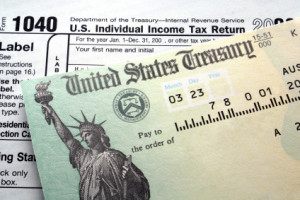 Many people have trouble saving anything for retirement. But I hear from a fair number of people who are looking beyond 401(k)s and IRAs for more tax-advantaged ways to save.
Many people have trouble saving anything for retirement. But I hear from a fair number of people who are looking beyond 401(k)s and IRAs for more tax-advantaged ways to save.
Many have maxed out their 401(k)s at work, or had their contributions limited because they’re considered “highly compensated employees.” Some don’t have a workplace plan at all, while others want to save more than IRAs allow. Even catch-up provisions–which allow people 50 and over to contribute an extra $5,500 to 401(k)s and an extra $1,000 to IRAs–aren’t enough for some of these super savers.
So here are options for those who have maxed out and caught up:
Opt for an HSA. Health savings accounts, which are coupled with high-deductible health insurance plans, offer a rare triple tax advantage: contributions are tax deductible, gains grow tax-deferred (and can be rolled over from year to year), and withdrawals are tax free if used for medical expenses. Withdrawals are also tax free in retirement, which makes HSAs a potentially better vehicle for saving than the much-loved Roth IRA. (Some say yes, others no.) Speaking of which:
Consider a back-door Roth contribution. If you make too much money, you can’t contribute directly to a Roth. There is a workaround, according to IRA guru Ed Slott, that takes advantage of the fact that anyone regardless of income can convert a traditional IRA to a Roth. You can read more about the strategy here and the potential drawbacks here.
Start a side business. Small business owners are spoiled for choice when it comes to tax advantaged plans. The options range from SEP IRAs to solo 401(k)s to full-on traditional pensions (and baby, you can save a ton of money in those—as in hundreds of thousands of dollars annually). Talk to a CPA about which plan makes the most sense for you.
Use a 457 plan. These deferred compensation plans are often available to state and local public employees as well as people who work for some nonprofits. Like a 401(k), you’re allowed to contribute pre-tax money. Unlike a 401(k), you don’t get slapped with early withdrawal penalties if you take the money out before age 59 (although you will owe income taxes).
Contribute to a regular brokerage account. There’s no upfront deduction, but investments held at least a year can qualify you for favorable capital gains tax rates. This, by the way, is typically a much better option than variable annuities, which tend to have high costs and limited tax advantages for most people.
